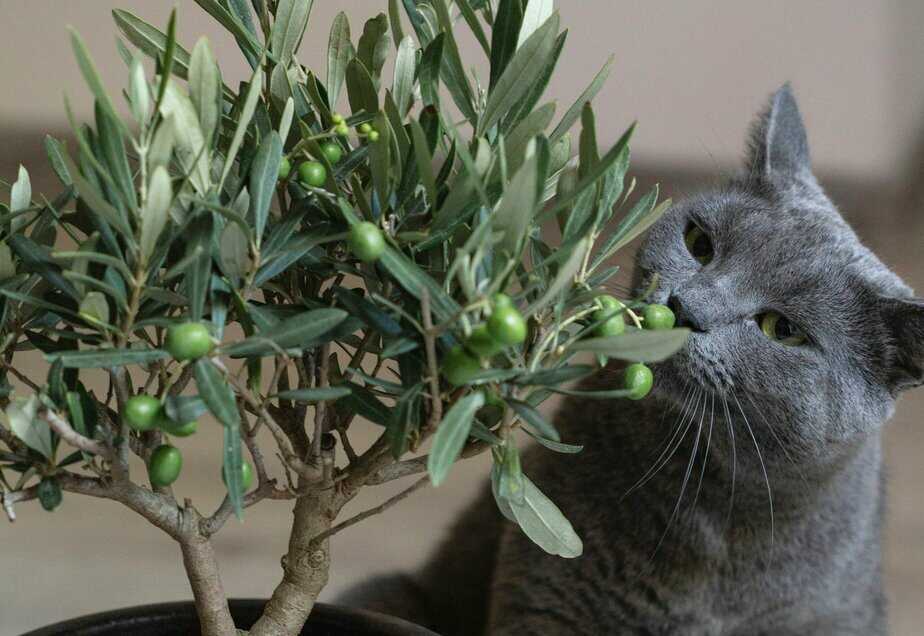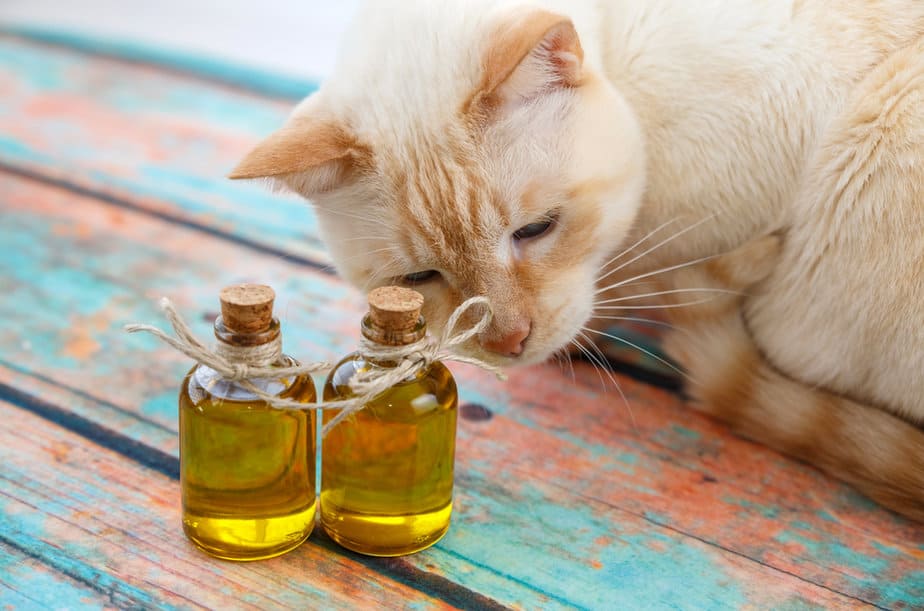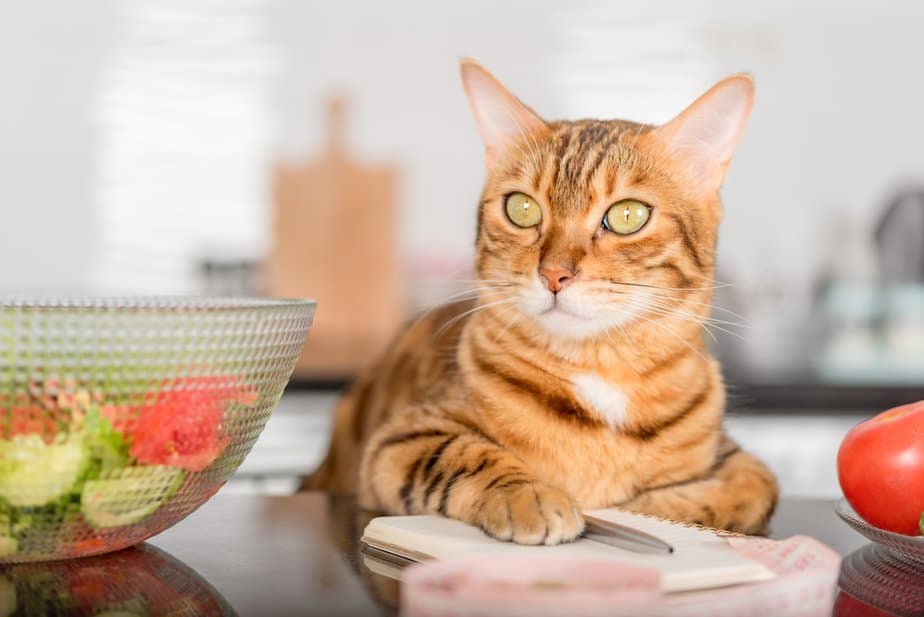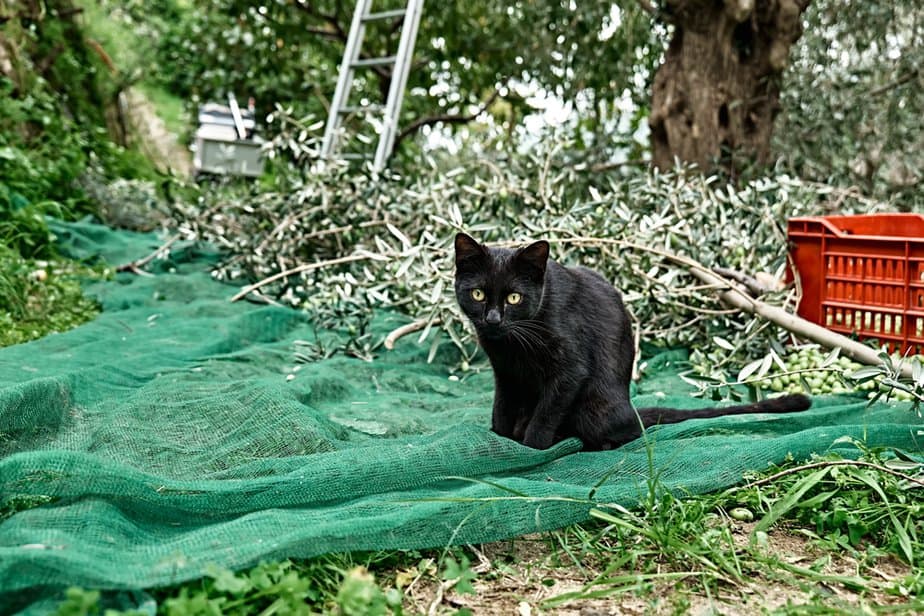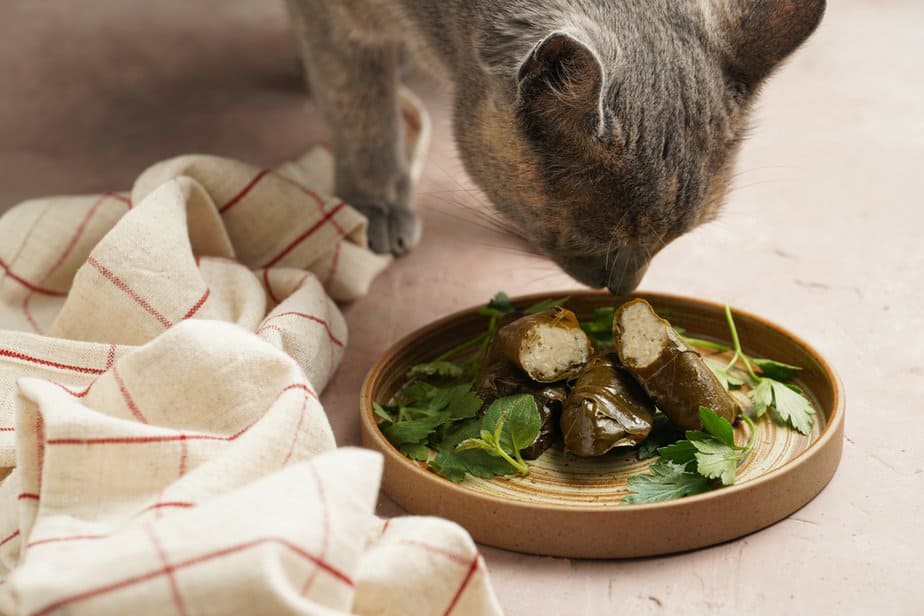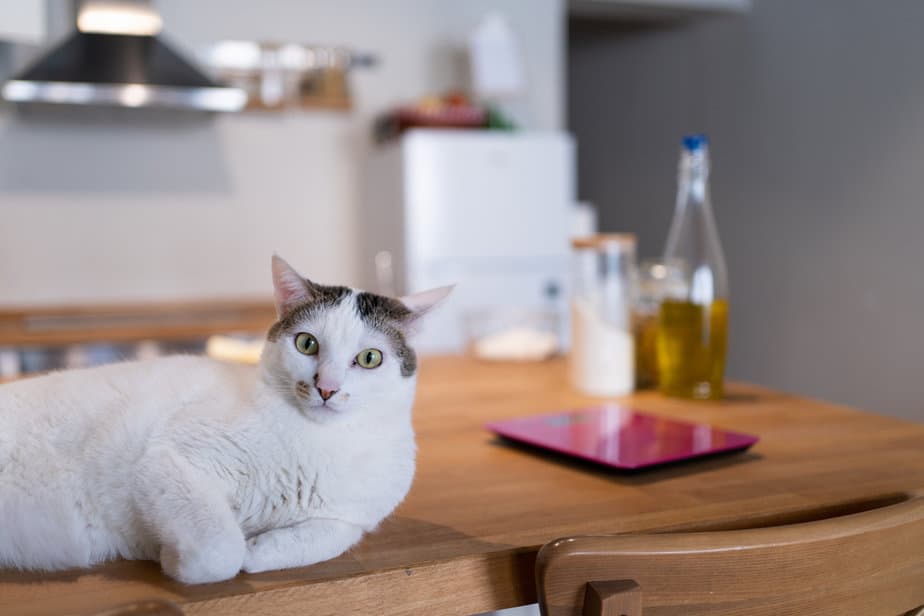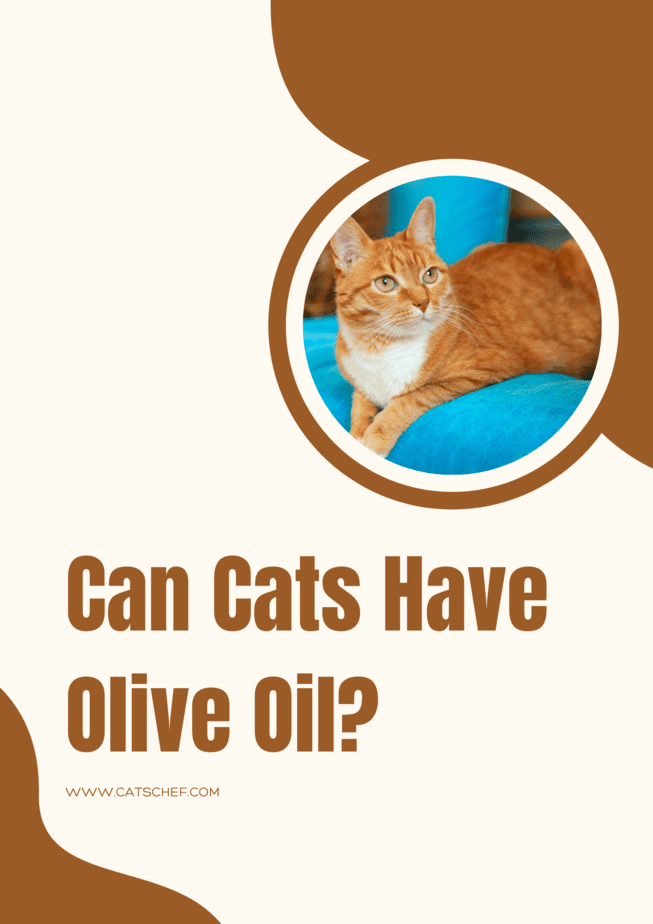📖 Table of Content:
“Honestly, dunk me in olive oil,” you say as you and your four-legged friend are watching your millionth TikTok on how you’re doing everything wrong when it comes to skincare (and your gut health, apparently). “We’ve been sleeping on olive oil, Ms. McFluffer. Wait, can cats have olive oil!?”
Olives have been that fruit for a while and it’s about time you and your mischievous munchkin started giving them the time of the day. She’s certainly been showing interest ever since you purchased that absolutely adorable (and absolutely necessary) olive oil dispenser.
She’s been walking around, scrunching her nose and perking her ears, sniffing and nibbling. “Mom, you need to let me have a taste of what’s on the inside!” You knew she was bound to be curious, but you didn’t expect her to be this persistent.
“Mom, come on, don’t be selfish!” You would let her scoff down the entire thing, but you’re not sure whether those TikToks were right. You’re all too willing to let her live out her olive oil fantasies, but you’re not sure she wouldn’t fall ill. You’ve learned the hard way you can’t trust everything you see online.
Well, fear not – we’re here to help! According to our friends over at the ASPCA (American Society for the Prevention of Cruelty to Animals), they see no harm in feeding a little bit of olive oil to your cat every now and then.
Cats can have olive oil, but there’s always a but hiding somewhere in there. Dive in below, find everything you’ve been looking to learn about cats and olive oil and take notes.
Can cats have olive oil?
They absolutely can, as long as they don’t have too much or too often. Whenever you’re thinking of feeding something to your cat, try to think whether that particular item falls under a category of foods that are supposed to be a natural part of her diet.
And if you figure out that it doesn’t, make sure you consult with your vet and go easy on that particular food. You might think you’re doing your cat a favor by saying yes whenever she gives you that look, but you’re not.
Cats are carnivores, which means they need a bunch of meat, animal protein, and animal nutrients in their diets to survive and thrive. They don’t need fruits, veggies, and grains the same way you do. They don’t even possess the enzymes necessary to break down and process most foods you eat regularly.
And while your furball does possess the enzymes needed to deal with olives and olive oil, she doesn’t really need them all the time. Cats like them – most cats go bonkers when presented with an olive branch because they sense similar compounds to those found in catnip. But, they don’t need them.
What’s the verdict then? We would say that olive oil can bring benefits to your cat’s table, but we wouldn’t ignore the risks. Take a look at what we’re talking about down below and make an informed decision before you make TikTok the bringer of the feline gospel.
Biggest olive oil benefits for your cat
Wondering whether there’s something wrong with olive oil considering the fact that we keep saying how cats can have olive oil but shouldn’t have too much? You’re not the only one – oils have been causing quite a fuss in the feline world for some time.
But, olive oil seems to be one of the best oils for your cat. Olive oil contains the lowest levels of saturated fats, which are bad because… cholesterol. Coconut oil, for example, contains 80% to 90% saturated fats, unlike olive oil, which only contains around 15%.
Olive oil also contains a bunch of vitamins, minerals, and antioxidants, making for numerous nutritional and health benefits.
1. Olive oil can soothe skin
That’s right! When you’re considering giving your precious purrincess a little bit of olive oil, try starting off topically. Olive oil’s great for maintaining the health of her skin and hair (Gigi Hadid, who!?) but also for battling rashes and irritations.
Add a couple of drops of olive oil to her skincare and haircare routine and voilà! She won’t have to worry about flakiness, dryness, or even matted hair. Massage a little bit of olive oil around her ears (and inside) and she won’t have to deal with ear mites. Antibacterial and anti-inflammatory properties, hello!?
2. Olive oil can get rid of hairballs
“Okay, now I’m pretty happy that cats can have olive oil!” Here’s the thing – hairballs aren’t bad solely because they look bad (or sound bad when your cat’s trying to get rid of them). Hairballs can actually cause health problems for your cat when she’s unable to get them out of her digestive system.
And, they can be pretty uncomfortable, which can make your feline friend restless and agitated. You may even end up with a couple of scratches by the end of the day, completely unaware of what your cat’s going through. Add a couple of drops of olive oil to your cat’s regular food and she should feel better.
3. Olive oil can relieve constipation
“Now you’re making things up, how’s that possible?” Olive oil helps lubricate your cat’s digestive tract which, in turn, helps everything she’s eaten move through her gut. Not only that, but olive oil can also soften up whatever’s trying to move through.
So yes, with only a couple of olive oil drops, your furry friend can have stress-free poops and enjoy her time in her litter box.
Biggest olive oil risks for your cat
That’s right, not everything’s bright and dandy when it comes to olive oil. There are certain risks you need to take into consideration before trying to reap the benefits.
Consult with your vet beforehand (regardless of the food you’re trying to introduce to your cat’s diet). Check out what to expect when you’re feeding olive oil to your four-legged friend. And always keep an eye out for the risks.
1. Calories
Olive oil is 100% fat and packed with calories, which makes for a pretty bad choice for chunky cats. One teaspoon of olive oil contains around 40 calories – not much for you, but quite a lot for your precious purrincess who doesn’t move her butt off of the couch for the majority of the day.
Consuming too much olive oil on a regular basis can easily lead to weight gain, which in turn can lead to other health problems. Overweight cats might appear adorable and fluffy, but they’re suffering because of that extra weight putting strain on their bones and muscles.
And don’t even get me started on other dangers of obesity and diabetes! Trust me, she’s much better off having a couple of drops here and there.
2. Stomach problems
Cats can have a little bit of olive oil, but anything more than that can cause stomach problems. “Umm, didn’t you say olive oil can help with constipation?” And we didn’t lie, but consuming too much olive oil can cause a nasty stomachache, diarrhea, and vomiting.
Your cat’s digestive system doesn’t expect her to consume large portions of olive oil in one sitting. She doesn’t possess the digestive enzymes necessary to break down such high levels of fat at once – not to mention the fact that most olive oil available to humans isn’t even the extra virgin kind that she needs.
The chemically-treated types of olive oil can wreak havoc throughout her digestive system. Unless you’re able to get your hands on some cold-pressed, extra virgin olive oil, you might want to skip out on the entire “let me feed my cat olive oil to see what happens” thing.
3. Allergies
And, yes, cats can have olive oil only when they haven’t experienced allergic reactions to olives or other olive products. Consult with your vet to check whether she gets the green light to have a drop or two, and keep an eye out for anything out of the ordinary.
Stop feeding your cat olive oil the moment that you notice symptoms such as redness of the eyes, rashes and skin irritation, drooling, wheezing, difficulty breathing, weakness, vomiting, and diarrhea.
An allergic reaction to olive oil isn’t that common among felines, but it’s better to be safe than sorry when it comes to your cat’s health. A couple of drops of olive oil here and there can bring some benefits to the table, but they’re not worth the risk if you haven’t got your vet’s go-ahead.
Read more: Is Patchouli Safe For Cats? Everything You Need To Know
